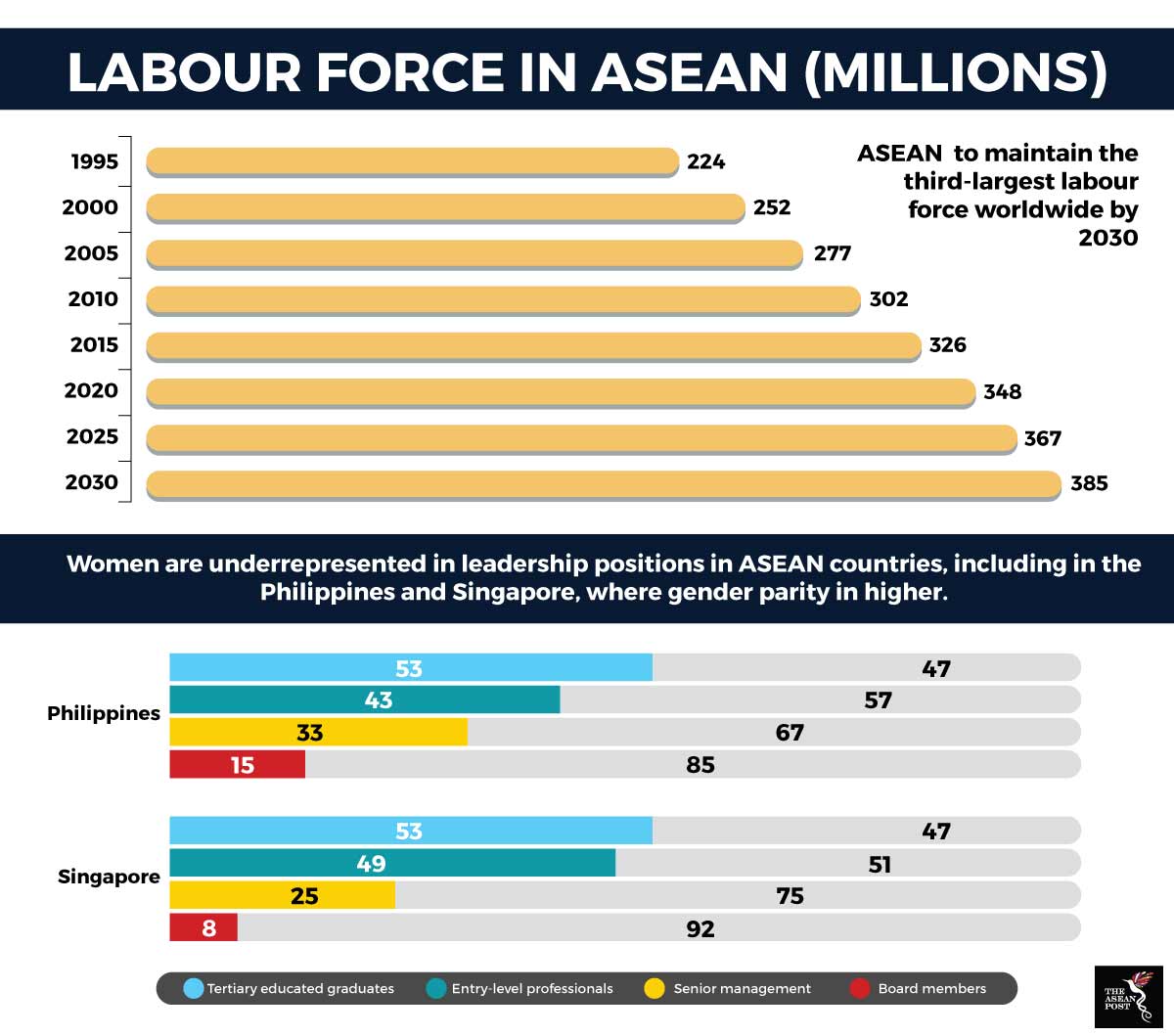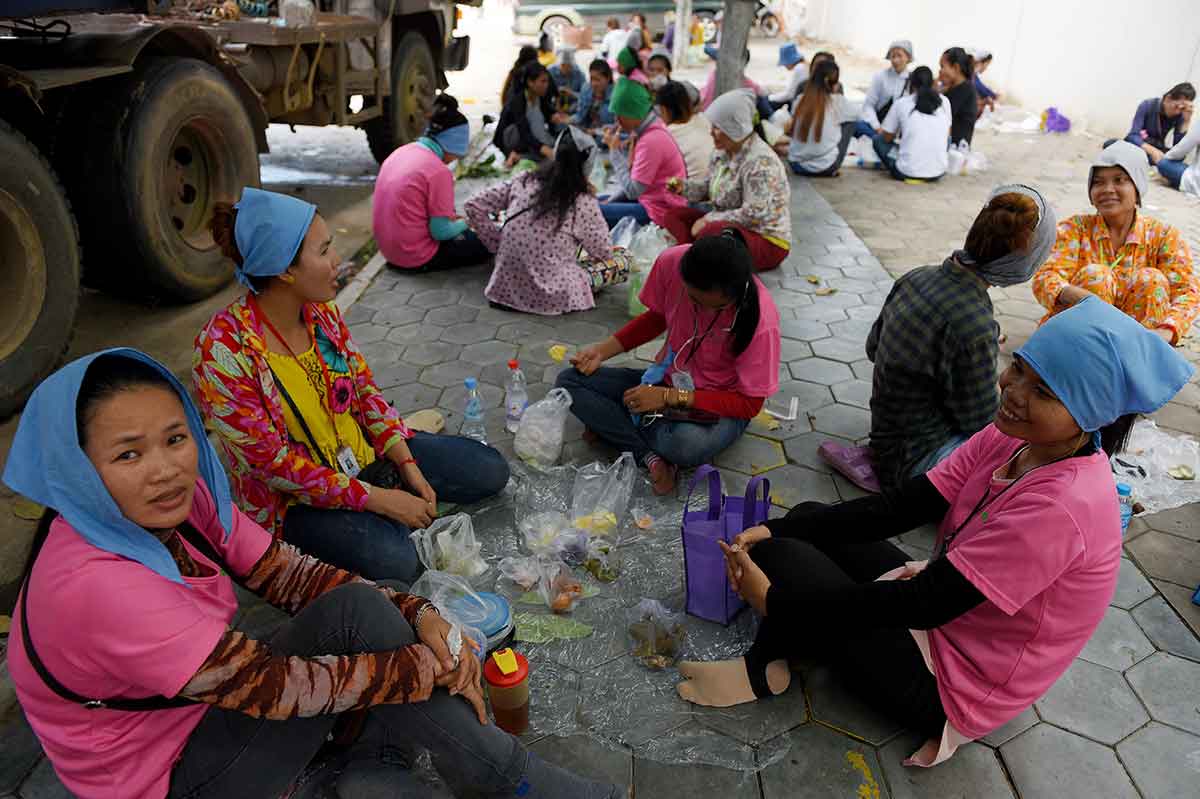Policymakers are often faced with the challenging task of improving labour markets in order to keep unemployment levels low and productivity high. In their arsenal are a plethora of tools aimed at improving education, facilitating training programs and providing channels for job seekers to network with potential employers.
However, the increasing incorporation of technology into modern day workplaces has thrown a spanner in the works especially with the looming risks of jobs being lost to automation and artificial intelligence (AI) – effectively rendering old skills obsolete. The International Labour Organization (ILO) predicts that half of salaried workers – approximately 137 million – in Cambodia, Indonesia, Vietnam, the Philippines and Thailand are at risk of their jobs being substituted due to breakthroughs in technology.
The solution then, is for policymakers to be more forward thinking and invest in educating the workforce of the future with 21st century skills like design thinking, gamification and data science. One way of doing so is for governments to place emphasis on STEM (science, technology, engineering and mathematics) which would play a critical role in nurturing the skills needed to harness and innovate technology.
Governments must ensure that employees with automatable skills such as factory workers, telemarketers and food service attendants are reskilled so that they may be productive in other sectors of the economy. This should be made an imminent priority as more advanced countries in the region like Thailand, Indonesia and Malaysia begin to deindustrialise – as the services sector outpaces the manufacturing sector – increasing demand for higher skilled workers.
Large-scale changes to the landscape of the labour market will require sufficient support from the private sector. Companies must be more open towards investing in mid-career retraining of 21st century skills for the long term as it may incur additional operating expenditure in the short term.
On top of that, businesses must actively mitigate the effects of Southeast Asia’s ageing population especially in advanced economies like Singapore. One way this can be achieved is by extending the age of retirement or to reintroduce retirees back into the workforce in mentorship or advisory positions.

Source: Various
Creating a gender equal environment
Apart from that, archaic notions of gender roles must be done away with and both, the public and private sectors must be more open towards enabling the participation of women in the workforce. A recent study by the McKinsey Global Institute found that the ASEAN region could add US$369 billion to its overall gross domestic product (GDP) in 2025 if the labour market is more receptive of women.
Despite proving their competency at work in their roles as housewives and mothers, women in the region continue to face challenges in terms of converting their knowledge assets into skills that are useful for economic and financial empowerment. Often times, they are relegated to the informal sector and have little to no legal protection or employment benefits.
Economic empowerment for women would entail raising their numbers in the workforce, increasing the number of paid hours as well as enabling their participation in high productivity sectors. Besides that, workplace policies must be more equal in terms of expanding affordable healthcare, providing parental leave and flexible working arrangements especially for those with babies and toddlers. Subsidised childcare infrastructures are already in place in countries like Singapore and the Philippines where companies are given tax breaks for providing such services to their employees.
At the grassroot level, education on gender equality should be implemented for the betterment of ASEAN’s future generations. Emphasis should be placed on the need for sincere respect, as opposed to contrived tolerance. Furthermore, progress in four areas – education, financial and digital inclusion, legal protection, and unpaid care work – could help accelerate progress in terms of economic development and regional prosperity.
Legal provisions outlining and guaranteeing the rights of women as full members of society have a positive impact on several social indicators, including the reduction of violence against women, the reduction in the number of child marriages, and increased labour force participation among women.
As countries in the region continue to realise their economic ambitions, policymakers must realise that growth must be undergirded by a strong and stable labour market in order to be sustainable in the long term. For the ASEAN of the future to not be bogged by prejudices related to gender and labour skills, the labour market should be adequately reformed to reflect such aspirations.
Related articles:
Not enough women in parliament
